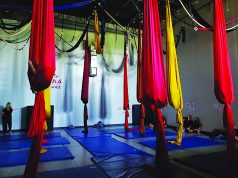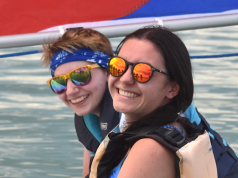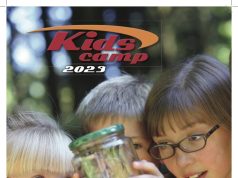
Whether it’s learning pawn structure in a game of chess, executing an arm bar against an opponent on the mat or learning how to hunt for fossils with scientific tools, hands-on education camps provide kids with experiences as active participants in niche fields. And there are secondary benefits to skill-based, immersive education, like a sense of personal responsibility that translates to children’s daily lives.
Corrie Colvin Williams, program director of CU Science Discovery, says she thinks it starts with making a curriculum relatable.
“Through our program, we hope that campers learn to see that science really is all around them, in their day-to-day life, helping them realize that they are already participating in the process of science inquiry as they explore the world around them,” Williams says.
From there, kids are positively challenged to explore their understanding of how a scientist operates and how various science fields contribute to a collective understanding of the world.
Paul Szeligowski, program director of Boulder County Chess School, says he believes translating abstract knowledge to personal achievement is important for intellectual growth.
“Studies have shown that there is a high correlation between chess and creativity, problem solving, concentration, memory and many other life skills,” he says. “It is something that kids can learn at a young age and enjoy throughout their lives.”
A research study from the University of Sydney in Australia assessed whether primary thinking tools developed in chess games help aid in secondary problem-solving tasks in the classroom. It concluded that “the case is exceptionally strong for using chess to develop our children’s minds and help them cope with the growing complexities and demands of a globalizing world.”
“It isn’t just abstract knowledge; they see the effects of it applied in their games,” Szeligowski says. “In the camp, they get to use that knowledge immediately, so there is a cycle of positive reinforcement as they learn more and more.”
James Strater-Smith, long-term instructor of martial arts at Easton Academy, agrees that camps need to offer kids more than a set of isolated skills if they’re going to prepare youth for an inevitable increase in responsibility.
“It’s not just about the punches and kicks. It’s about character development and leadership,” Strater-Smith says. “We like to tell parents that hopefully their child will never be in a situation where they will need to utilize the techniques we are teaching them, but the life lessons that come with training can be applied in their every day — lessons like honesty, self discipline and respect.”
Strater-Smith speaks from experience. He grew up training jiu jitsu and says it gave him a sense of empowerment that he may not have gotten elsewhere. The most enjoyable part of teaching the camps, he says, is watching shy kids become more assertive about their needs.














